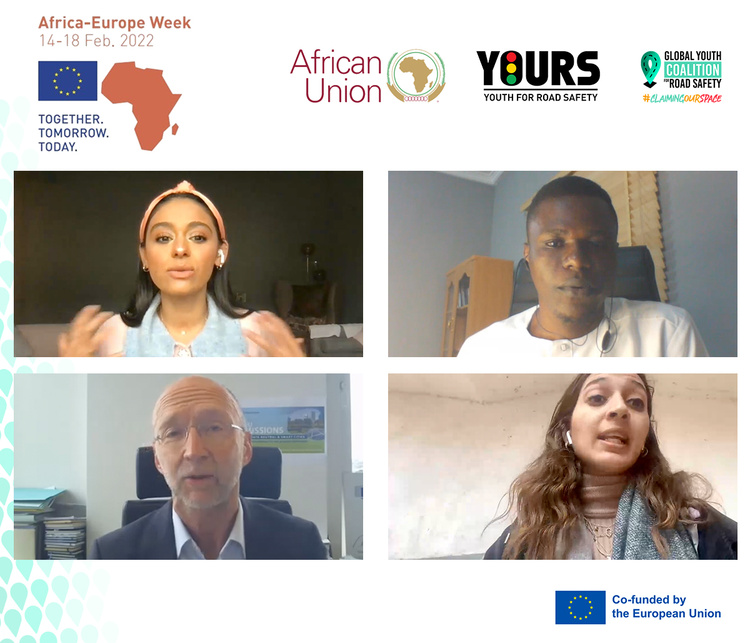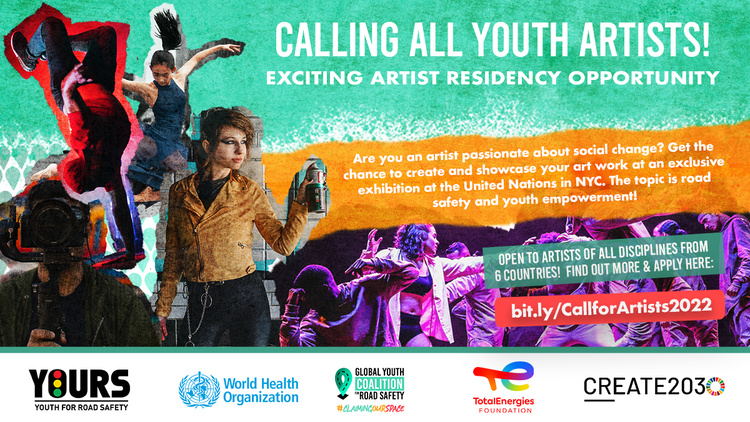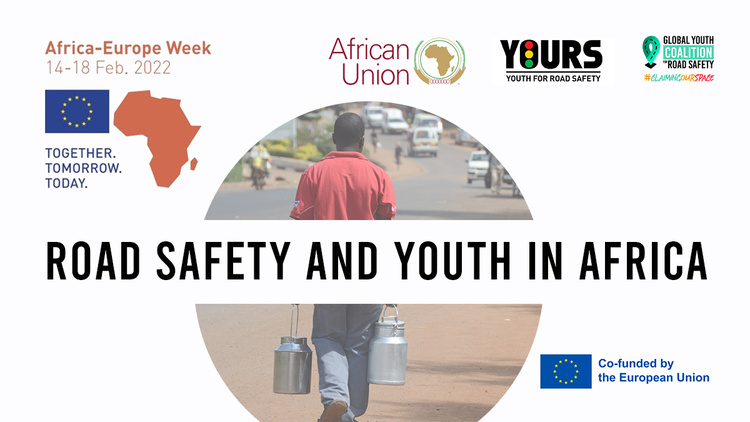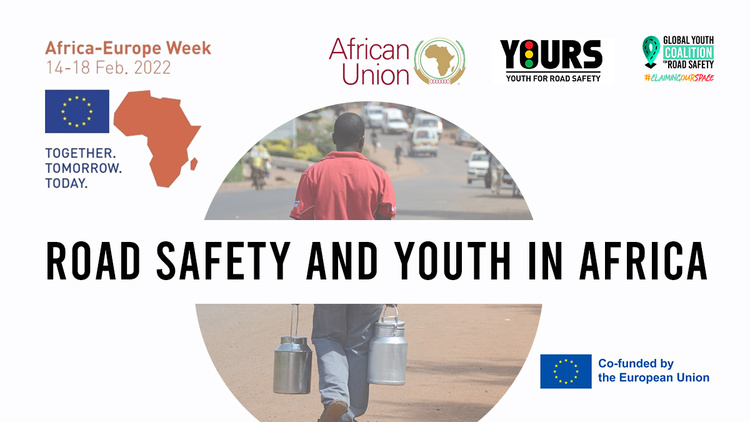
High-level policymakers and youth leaders come together during Africa-Europe Week
Earlier on Tuesday, 15 February, the Global Youth Coalition for Road Safety, YOURS – Youth for Road Safety, African Union, and the European Union came together to organize “Youth and Road Safety in Africa”, one of the official side-events during Africa-Europe week that leads up to the EU-AU Summit. During the session, youth leaders and high-level policymakers came together to talk about the road safety situation around African roads and how these issues affect young people.
Youth taking action
The session featured different speakers representing young people and leaders from both the African Union and the European Union. It was split into three parts; an intergenerational dialogue on the challenges on African roads from a youth perspective, a discussion on practical solutions through case studies, and a conversation on how and where to embed meaningful youth engagement on road safety policy-making.
Throughout the event, leaders from the Global Youth Coalition for Road Safety talked about their daily experiences when dealing with issues on the road. Youth Leadership Board member, Simon Patrick Obi, gave some examples of recent road crashes that happened in Nigeria. He emphasizes that there is a level of apathy every time these crashes occur. He called on governments, media outlets, and other organizations not just to pay more attention to issues around road safety but to also involve young people in all stages of decision-making and project implementation.

EU Youth Sounding Board representative and Youth Coalition SDG Champion Omnia el Omrani talked about her experiences as a doctor, talking about how often they admit patients who’ve suffered from road traffic trauma.
Other leaders from the Youth Coalition shed light on what it means to meaningfully engage with young people. Youth Leadership Board Member Oliva Nalwadda and regional leader Linda Nekesa shared how the Youth Coalition supports and empowers youth to take action for road safety on both local and global levels.
Oliva also encourages the global youth to take part and take action on issues that affect them. “Be bold. Take action in creative ways and be loud at the decision-making table.”

Results of the session
High-level policymakers and decision-makers attending the event acknowledged the difficulties youth and other road users face in the African region. HE Benacer Boulaajoul, General Director of the National Road Safety Agency in the Kingdom of Morocco, sheds light on the lack of support there is for improvements in road safety in mobility in the region, emphasizing that road traffic injuries are a major development problem in Africa.
Representatives of the European Union and the European Commission showed and expressed their support to improve road safety in the region and keep youth safe. HE Jutta Urpilainen, European Commissioner for International Partnerships, says “Let’s keep roads safe. Let’s guarantee our youth’s future”.

Meanwhile, European Coordinator for Road Safety and Sustainable mobility, Matthew Baldwin, encourages young people to claim their space and hold decision-makers and policymakers accountable with regards to their promises and commitments. “Be determined, be strategic, keep pushing, and don’t take no for an answer.”
From the session, the Youth Coalition was able to create a document that will help support the promotion of meaningful youth engagement in road safety and ensure follow-through of the commitments given by policymakers and decision-makers.













